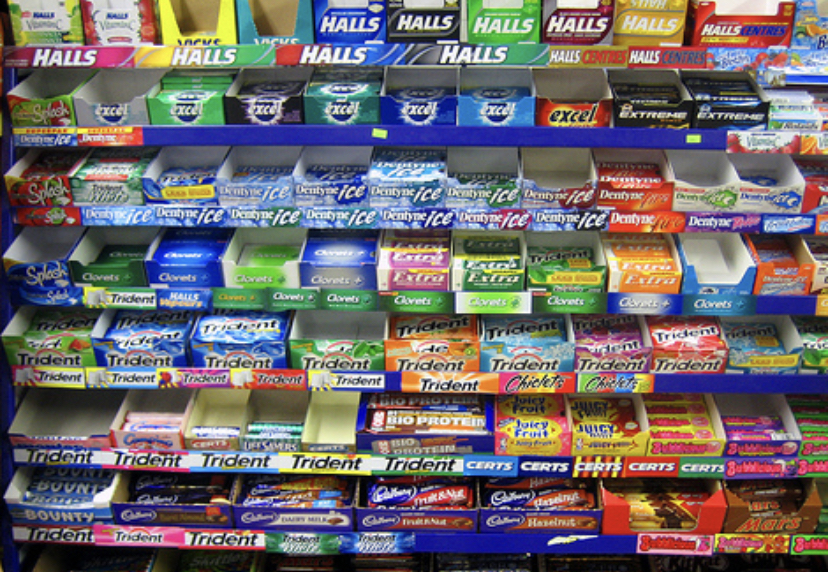How Does Gum Influence General Performance?
April 17, 2023
Do you enjoy chewing gum? If you do, what flavors do you like? Let me guess, a lovely mint taste freshening your breath and making your mouth salivate. But when the flavor runs out, where do you put it? If you look under any desk in Miami Senior High, there is guaranteed gum stuck underneath and this is what teachers hate. However, gum has both beneficial and negative impacts on overall performance, whether they are mental or physical, which is why some students do it.
Official M.H. school policy on gum
The school has a policy that you are not allowed to have gum in classrooms and the public library. Assistant principal for 10th grade Mr. Arscott said, “I don’t really mind students chewing gum, just as long as they know how to dispose of it right. Let’s not have our school destroyed because it is very beautiful, and we have to protect it.”
Stress reliever and focus enhancer
Chewing gum can have many benefits. It can be a stress reliever and help with your focus. Intensive math teacher Mr. Strickland said, “It’s like a pacifier when you were younger to keep you calm as a temporary distraction, but instead, you’re just chewing nerves away. For some students, it may keep them calm, concentrated, and active.”
Football and track Coach Mr. Bernard agrees. “It used to kill my nerves before a football game, whenever I would have butterflies,” he said.
Melody Orellana says, “I like movement to learn so it helps me maintain focus.” Jeiel Herrera says, “It helps me focus before a test. If you’re nervous, it directs all those nerves to chew the gum and it doesn’t really distract you so you can still pay attention in class while chewing gum.”
“I don’t think, I just chew, and it helps me go to sleep,” says Jaquan Edwards.
Saliva maker and breath freshener
Reynaldo Ordaz said, “The flavor is enjoyable and it’s an appetite suppressor. When you chew gum, it makes you salivate.”
According to the article titled “5 Benefits of Chewing Gum “, posted on the website for Colgate toothpaste, another significant benefit of chewing gum is that it can relieve the discomfort of dry mouth and thirst. Individuals with dry mouths may have difficulty eating, swallowing, or speaking. Saliva is beneficial to your mouth, and chewing gum promotes saliva flow which reduces acid on your teeth that causes decay.
Chewing gum also allows for clean nice breath to go on with the day and improves your jawline. According to Mr. Strickland, “It can also help kids whose breath is not up to par. After eating, chewing sugar-free gum can help clean food off your teeth.”
Sophomore Jeiel Herrera said, “After chewing gum that’s very hard, it works out the face muscle into forming it to be more defined.”
But what flavors and brands are tops at Miami High? Reynaldo Ordaz’s favorite is spearmint from Extra and Wrigley’s 5 gum. Jeiel Herrera, who likes Extra, Jawliners, 5 gum, chews a variety of flavors: mint, watermelon, and cinnamon.

Dirty desks and distracting noises
Teachers hate gum because they find random gum pieces placed in spots where they have no business. It creates messes and is disgusting to accidentally touch a piece of gum stuck under a desk.
“I hate gum because it destroys my classroom, it’s an interruption in the classrooms with kids smacking and popping their gum during a test or a distraction with students passing it around. Even if they may not put it under a desk, they tend to put it in a gum wrapper and throw it around,” Mr. Strickland says.
Dental dangers
Chewing gum can make you hungry and can damage your teeth along with your gums. Reynaldo Ordaz says, “If you chew too long, your teeth start to hurt, and it can damage your gums.”
The sugar levels in gum can lead to cavities. Sophomore Melody Orellana said, “It causes your teeth to rot. The more you chew, all that sugar is bad for your teeth.”
Sugar consumption is also linked to a range of health problems such as obesity, insulin resistance, and diabetes, according to the article titled “Chewing Gum: Good or Bad?” posted on the website for healthline.com. When ingested in excessive amounts, the sugar alcohols used to sweeten sugar-free gum have a laxative effect. This implies that eating a lot of sugar-free gum may result in stomach discomfort and diarrhea. This article cites another study which found that frequent chewing gum may cause headaches in people prone to migraines and tension. It also says, constant chewing could lead to a jaw problem called temporomandibular disorder (TMD), which causes pain when you chew.





